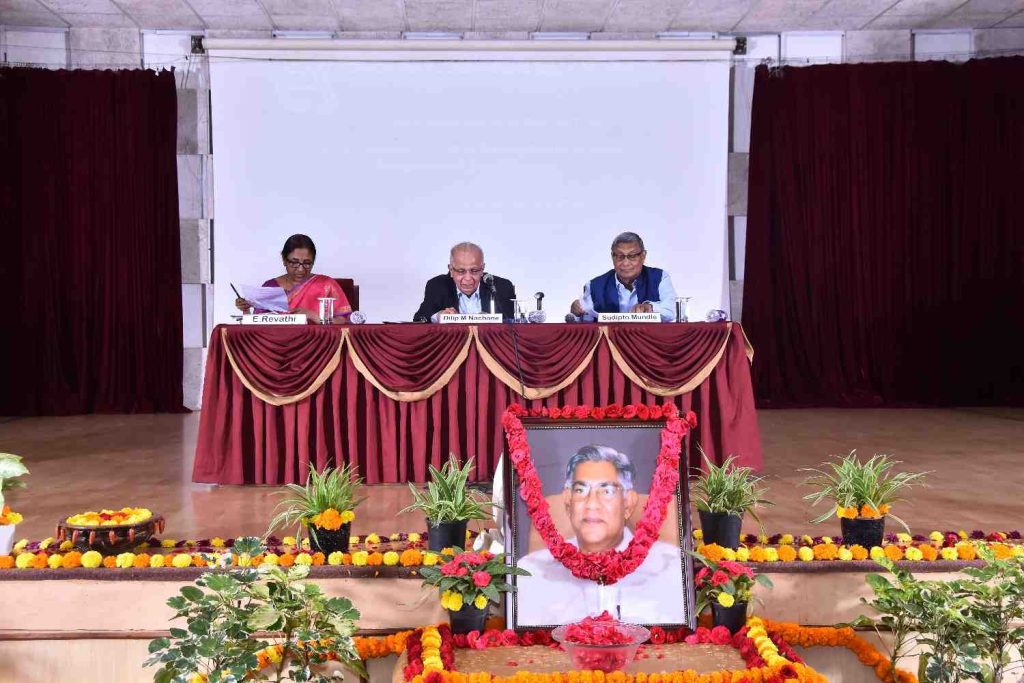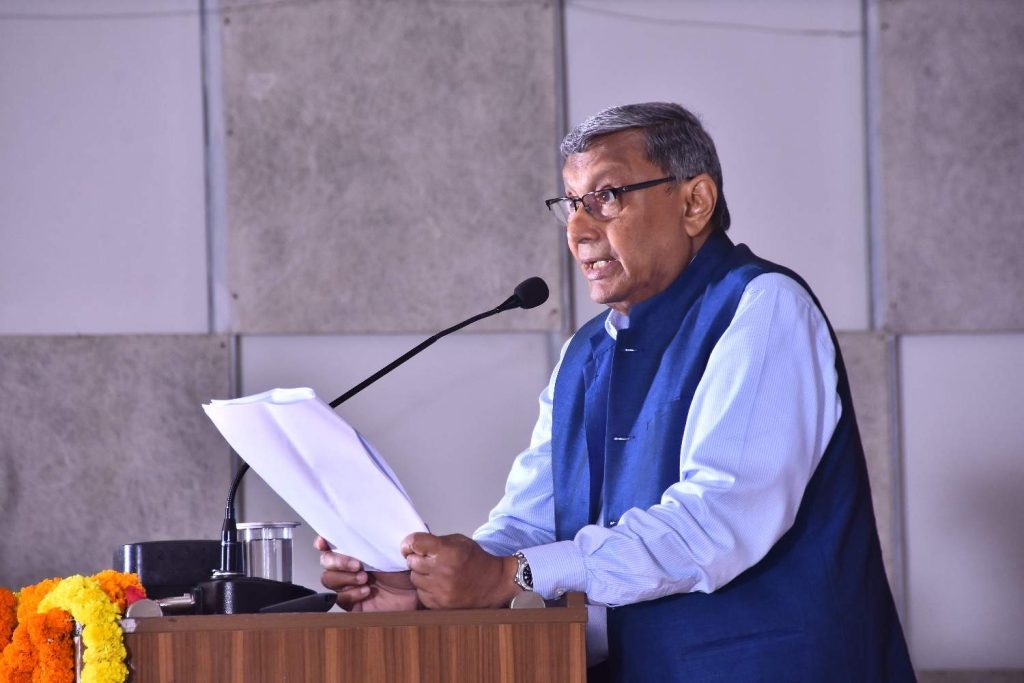2nd Prof. R. Radhakrishna Memorial Lecture by Prof. Sudipto Mundle on “Some Observations on an Employment Centered Perspective of Development” at CESS


The Centre for Economic and Social Studies (CESS) organised the 2nd Prof. R. Radhakrishna Memorial Lecture on 13th August 2025 at BPR Vithal Auditorium. Professor Dilip M Nachane, Chairman, CESS, has chaired the session. For this event, Prof. Sudipto Mundle, Chairman, Centre for Development Studies, Trivandrum, has been the chief guest and given a talk on “Some Observations on an Employment Centred Perspective of Development”
In the opening remarks, Prof. Dilip M Nachane mentioned that Prof. R. Radhakrishna was an eminent economist, former Director of CESS from 1985-1995, Chairman of CESS from 2013-2022, and Vice Chancellor of Andhra University. He played key roles in national poverty estimation committees (Lakdawala and Tendulkar) and led several international development initiatives. He served as Member Secretary of ICSSR and Director/ Vice Chancellor of IGIDR, and advised institutions like the World Bank, ADB, and UNDP. He had published over 100 research papers on poverty, food security, and economic welfare. Honoured with the VKRV Rao Prize and Telugu Atma Gaurava Puraskaram, his legacy inspires generations of scholars and policymakers. Lecture
The chief guest, Prof. Sudipto Mundle, pointed out that employment as the principal indicator of economic performance is a powerful counterpoint to GDP-centric narratives. India’s projected growth of 6.5% in 2024 and 6.2% in 2025 positions it as the global frontrunner among major economies. Despite this, job creation has not kept pace, suggesting a disconnect between economic expansion and labor market absorption. To overcome unemployment, he proposed three pillars, which are as follows.
- Maximise employment growth in the short run by incentivising the development of six or seven large, employment-intensive industries and services. These would all be traditional, low-productivity sectors requiring relatively unskilled workers who would be hired at low wages. This matches the skill profile of a significant segment of the Indian workforce, and this profile cannot be changed overnight. These would not be what we might call good jobs. But at least they will provide the large bulk of new entrants to the workforce with a means of livelihood, however modest.
- The introduction of UTCs at the secondary stage of education, combined with a complete overhaul of higher education, will transform the Indian workforce into a high-skilled, high-productivity workforce over the medium to long term. Producing a workforce capable of mastering emerging technologies, particularly artificial intelligence, and managing their introduction into modern industries or services is essential. It is a prerequisite for ensuring that India remains globally competitive as it transitions from a low-middle income country to a high-middle income country and eventually to a high-income country, Viksit Bharat.
- Agriculture Interventions will be required to significantly raise productivity, ecologically sustainably. Cropping patterns must be nudged away from water-intensive crops towards high-value-added crops. At the same time, the overall production structure is shifted from crops to non-crop products such as dairy, poultry, fisheries, and other livestock.
In this meeting, Prof. E. Revathi, Director CESS, CESS founder members Prof. J. Mahender Reddy, EPW former Editor Ram Reddy, faculty members from various universities, family members of Prof. Radha Krishna, and faculty members, Staff, and Students of CESS were present.
